Rudolf Steiner, Life and Work – 1914–1918: The Years of World War I
“All we can do is try to gain a clear picture of the situation and really live with that knowledge. We must remember that thoughts are actual, dynamic forces. All we can do now is think matters through clearly. Living with these true thoughts for just two days before being drawn in again by the black magic of journalism will make a difference. And the time might come when we can use this to bring something about or get someone else to do something.” Rudolf Steiner, Jan. 13, 1917
In volume 4, Peter Selg continues his thorough and careful exploration into Rudolf Steiner’s life and work, focusing on the period of 1914 to 1918 and World War I. Steiner experienced the assassination in Sarajevo as a deeply serious tragedy that would inevitably lead to war and lamented the widespread reluctance to regard such critical events with the appropriate earnestness and concern.
Steiner saw the dark time of World War I as largely the result of mounting economic tensions between England and Germany, marked by unsustainably materialistic and nationalistic thinking. In his view, the prevalent social concepts resisted evolution toward a form of society that would enable a long-term future peace; he would soon propose his alternative in the form of the “threefold nature of the social organism.” The core idea of this concept is that, to maintain societal health, sovereign and mutually interdependent relations must be upheld among the three principal domains of social life—the political, economic, and cultural-spiritual realms.
Rudolf Steiner felt strongly that the threefold concept would be the only hope for lasting peace in war-torn Europe and devoted tremendous energy to promoting and clarifying his “threefold idea.” In the end, his many attempts to reach out to those capable of bringing this idea to realization did not succeed, though certain high-ranking individuals did reach out to Steiner for counsel.
Volume 4 describes a dramatic period during which Rudolf Steiner showed competence and devotion in his attempts to communicate and implement a long-term path to peaceful relations in Europe. His lectures during this time focused heavily on themes of inwardly accompanying those who have died; caring for the wounded; the importance of selflessly experiencing the full tragic reality of world events; and the vital importance of truthfulness in journalism. He regarded the deficiency of truthful reporting to be so dire that he considered founding a news organization in Switzerland.
Steiner’s deep concern for the tragedy that had befallen Europe, for the many lives violently cut short, and for the political exploitation attempted in the aftermath of the war, led him to imbue his anthroposophic activity with a fundamentally new gesture, focusing on practical contributions to society in a way never before attempted in the anthroposophical movement.
“The soul passes through the nations: when we look at the higher self the concept of nationality becomes meaningless. Because everything that is an expression of our nationality we will leave behind when we cross the threshold of death. We must therefore be aware as seriously striving human beings that—in our consecutive incarnations—we do not belong to one nationality but to various nationalities and that all that connects us with each of these nationalities is left behind in the moment of death.” — Rudolf Steiner (Oct. 31, 1914)
This volume is a translation from German of the first chapter of Rudolf Steiner. 1861 – 1925: Lebens- und Werkgeschichte. Band 2: 1914 – 1922 (Ita Wegman Institut, 2012).
C O N T E N T S:
8. The Years of World War I (1914–1918)
Notes
About the Author
Peter Selg was born in 1963 in Stuttgart and studied medicine in Witten-Herdecke, Zurich, and Berlin. Until 2000, he worked as the head physician of the juvenile psychiatry department of Herdecke hospital in Germany. Dr. Selg is now director of the Ita Wegman Institute for Basic Research into Anthroposophy (Arlesheim, Switzerland) and professor of medicine at the Alanus University of Arts and Social Sciences (Germany). He lectures extensively and is the author of numerous books, many of which have been published in English.
Margot M. Saar studied at the Universität des Saarlandes, at Open University, UK, and at Institut für Waldorfpädagogik Witten Annen, Germany. She is an experienced translator and interpreter in specialty fields (education, medicine, philosophy, anthroposophy, homeopathy, anthroposophic medicine, general science). She has been a foreign language teacher at Michael House School Derbyshire, UK, a teacher of foreign languages and philosophy, exam officer, and upper school mentor at Michael Hall School, East Sussex, and translator of technical manuals and legal contracts, international correspondence, office management at Hüls Troisdorf AG Witten Germany. Margot has translated numerous books for SteinerBooks, including Peter Selg’s 7-volume biography of Rudolf Steiner.
Rudolf Steiner, Life and Work, Seven Volumes

Vol. 1. (1861–1890): Childhood, Youth, and Study Years
Vol. 2. (1890–1900): Weimar and Berlin
Vol. 3. (1900–1914): Spiritual Science and Spiritual Community
Vol. 4. (1914–1918): The Years of World War I
Vol. 5. (1919–1922): Social Threefolding and the Waldorf School
Vol. 6. (1923): The Burning of the Goetheanum
Vol. 7. (1924–1925): The Anthroposophical Society and the School for Spiritual Science




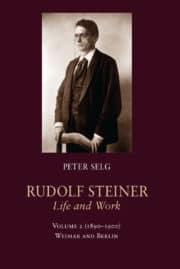


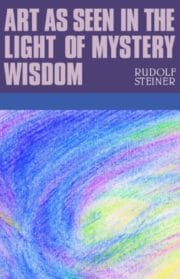
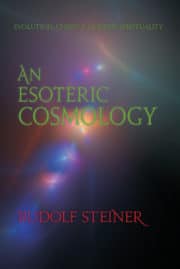
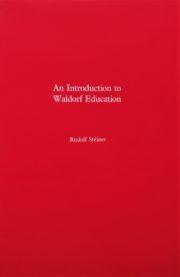
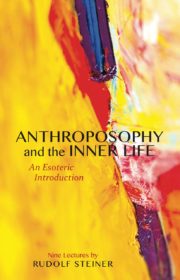
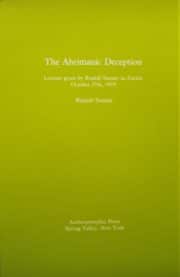

Reviews
There are no reviews yet